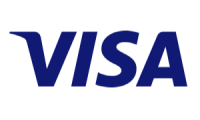With respect to e-commerce, it is a recurring theme to attract visitors based on "Search Engine Marketing" (SEM). This refers to a technique that enables your website to appear in search engines through paid marketing campaigns. There is also a popular technique called "Search Engine Optimization" (SEO). It aims to improve the way a webpage is positioned on the internet. In order to avoid confusion, it is necessary to clarify the two concepts.
e-commerce
The effectiveness of proper positioning on the web
Employing an blend of different online marketing techniques, generally SEO and SEM, enables companies to draw visitors to its website.

- Search Engine Marketing (SEM): Encompasses all that is paid advertising on search engines through tools such as Google AdWords, Yahoo Search Marketing, and Microsoft Ad Center. These ads appear in the right of the results, and in many cases the beginning. The cost varies according to the value of the click for the keyword under analysis. Its purpose is to get the most clicks, by an appropriate cost and generate site visits. One advantage of SEM is delivering short-term results, because it attracts potential customers and maintains a flow of visitors to the page.
- Search Engine Optimization (SEO): Aims to achieve the best rankings on the major Internet search engines without paying for ads services. It's recommended to hire a professional SEO consultant. Talking to a specialist ensures different techniques, applied to a web or blog, ensure that the site leads search result positions in Google or Yahoo. In this case, the company is not paid when people click on the link.
How to be the first:
The massive use of Internet and the competition of companies always wanting to be on the top of the search results, have led search engines to incorporate new variables that must be taken into account for the optimization of a website.
While individual search engines have their own algorithms, a number of common factors to determine the position of the site in search engines:
- Frequency: Number of times the word or key phrase is repeated in the text of the site, it should be noted that there are search engines that avoid falling into any "tricks" sites (e.g. repeat a word excessively and hide it with the same color as the background).
- Links: Number of links to the site from other good quality sites or with a good ranking. The search engine assigns a greater weight to links from those sites to the text or content that is similar to the site you are linking (seniority and authority are key in determining the value of the link), search engines can detect and penalize "link farming" ("networks" of pages with links to and from other pages in the same "network").
- Title URL: Keyword/key phrase in the title of a website listed in the top of the browser window, typically gives greater weight to the keywords included the left of the URL title.
- Meta-tags: They are found in the HTML code, although not visible to users of the site. They are used by search engines to identify a site. Some search engines like Google reported no weight assigned to meta-tags in results, but others like it the Yahoo! do consider them.
- Graphics: Sites that use too much graphic material in their titles and names must manage images, files, etc. properly so that search engines deploy them in searches.
- Social Networking: From the the corporate web site to the company profiles on social networks, they all have a positive impact on positioning a company on a search engine.
KEYWORDS


Follow Us